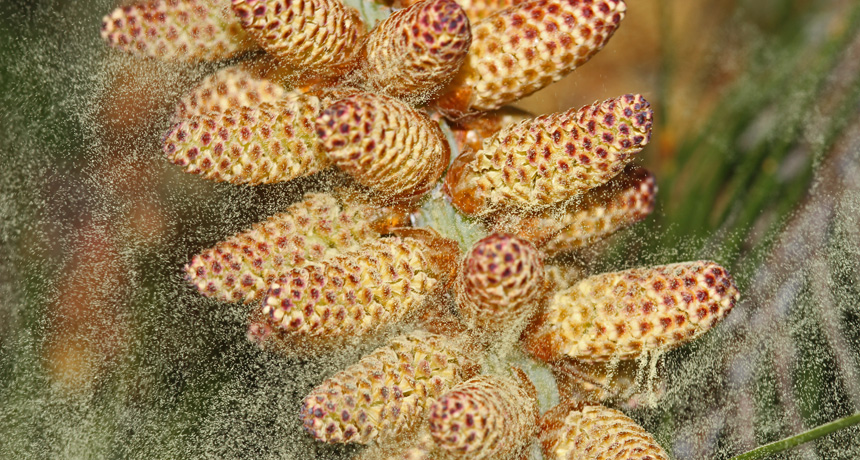Allergy-related Google searches follow pollen season ups and downs
Online queries could provide allergen data for areas without monitoring stations

I’M FEELING LUCKY Peak pollen outpourings from ragweed, oaks and pines (one shown) coincide with spikes in allergy-related Google searches, new research finds.
Paul Appleton/Flickr (CC BY-NC 2.0)







